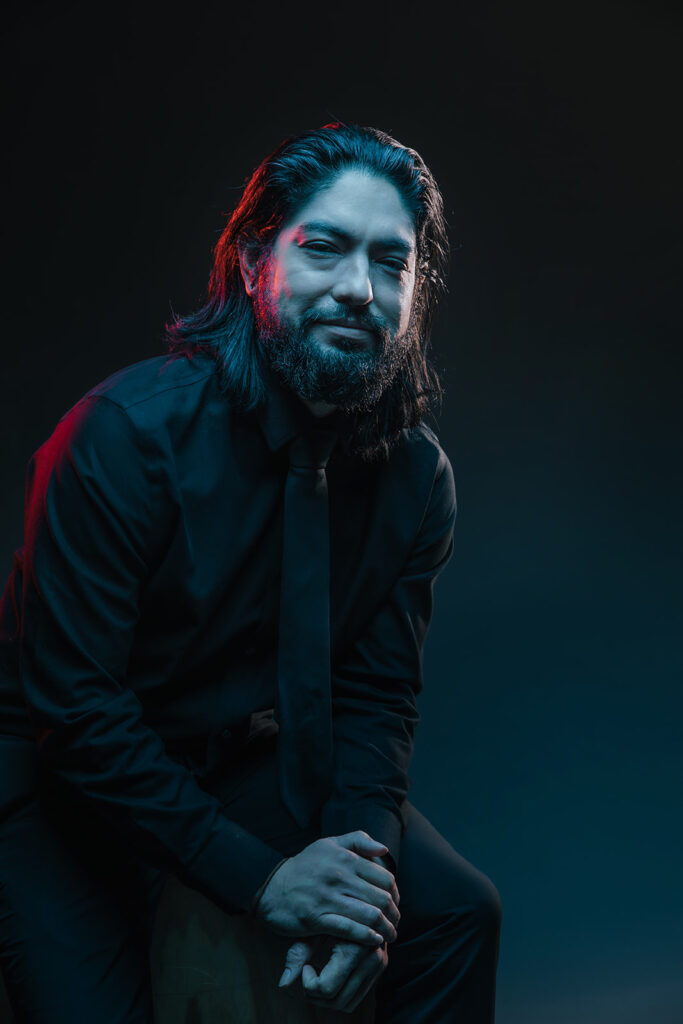
Supe Troop’s Laura Katz interviews composer Marlon Espino about film scoring, Cellar Door (which they both worked on), and soup!
Supe Troop (ST): How did you get into scoring?
Marlon Espino (ME): That is a long-winded story, but I will try and keep it brief, ha. I got into film scoring unintentionally. I studied music and composition at Texas Tech University with hopes of becoming a music producer. I was introduced to the brilliant composer and producer Mark Mancina, who was in the middle of a few amazing projects, and I was thrown into the fire. Mark became my mentor and taught me everything I know about film music and composing for media. I am very thankful and I can’t imagine doing anything else.
ST: How do you start on the score for a new project?
ME: Quite possibly my favorite part of starting a new project. It’s so exciting and fulfilling to find a film’s sound. Most of the time I’ll start with the script and let my imagination run amok. Then I’ll start to play around with some musical ideas and start to develop a few sonic soundscapes away from picture. Once I feel pretty good and have a few ideas mapped out, I will circle back and see what’s working or as it often happens not working, ha.
ST: Without giving away too much, what was your favorite scene in Cellar Door to score?
ME: So many great scenes! You know, I really enjoyed scoring the Sera scenes. The character is a mathematics professor, as well as an accomplished pianist. There was some on-screen playing, and it was fun to manipulate her theme and follow her character development throughout the film.
ST: When scenes give you trouble, what are some of the things you do to make them work?
ME: Such a great question! More times than not, if the scene has become problematic it’s usually because I have over complicated it in some way. Overwriting or making the cue too dense. I’ll simplify what I have and make sure I am hitting the right emotional cues that the director intended. I’ll make sure I am feeling the right emotions at the right moments and delete anything that doesn’t support the scene. Usually it’s quite a bit.
ST: What is an example of where you think another composer nailed a project or particular scene?
ME: I am going to have to say the gifted Mark Mancina. He has a real gift for melody and creating a sound. He did it on Lion King, Moana, and countless others. I had the privilege to work on Moana 2 with Mark, and he just nailed the score and production of the songs!
ST: What non-score music are you listening to right now?
ME: I have a 6 year old daughter who loves to sing, and it’s her playlist that my wife and I hear day in and out.
ST: What’s your favorite instrument?
ME: Guitar! Guitar is what got me more deeply involved in music and given me many opportunities over the years. From playing in bands to studying classical guitar in college, it’s hands down my favorite instrument, with drums and percussion coming in a close second.
ST: What would be your dream project to score?
ME: You know Cellar Door was a dream project. It comes down to the people you get to collaborate and work with. Cellar Door’s director Vaughn Stein, [beyond] being a brilliant director, creates such a wonderful, safe, creative working environment. I would love to score any of his movies! As far a genre, I do love thrillers. There is more creative freedom and they tend to span genres, which makes things exciting.
ST: What projects do you have coming up that you are excited about?
ME: I am so excited about the release of Cellar Door! I think the film turned out fantastic, and I am excited for people to see it. I also had the privilege of working on Clint Eastwood’s Juror No. 2 in theatres now, as well as upcoming releases of Disney’s Moana 2 and Disney’s Mufasa coming to theatres in the next few months.
ST: What is your favorite kind of soup?
ME: There is this deli near the studio that makes the most delicious vegetarian split pea!!
Thanks, Marlon! You can watch Cellar Door in theaters now or rent on your favorite streaming service.
Click on the tags below for more! Hungry for more interviews with composers? You can find them all here.